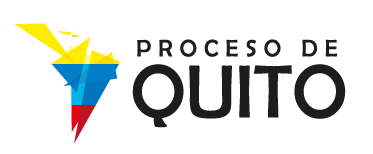BRAZIL seeks to strengthen National Refugee Status Determination Systems
The country presents together with UNHCR the progress of the Regional Platform for the Exchange of Good Practices and defends the leading role of the Conare in the response.
By Isadora Zoni
Brasília, April 29, 2022 — At the Thematic Workshop led by Brazil, the main advances in the consolidation of the Regional Training and Exchange Program for the Development of Refuge Capacities were presented. At the same time, countries were consulted on the strengthening of national committees for refugees (Conare) in the region and their efforts to develop technical capacities for the development of National Refugee Status Determination Systems were highlighted.
Rebecca Alvarado spoke on behalf of the U.S. government, as part of the Group of Friends, and highlighted the importance of Brazilian leadership on the issue of asylum, with more than 49,000 refugees through a procedure facilitated through prima facie recognition. Alvarado reinforced that the U.S. has a history of aid in humanitarian situations and reaffirmed its commitment to support governments and accompany the Quito Process to respond to the Venezuelan flow in the region.
During the thematic workshop it became clear that in several countries in the region, a significant number of people from Venezuela in need of international protection:
- face legal and practical barriers to effective access to international protection mechanisms and other legal permanence agreements, which guarantee adequate standards of protection;
- have an irregular legal situation that generates gaps and gaps in protection, as well as the impossibility of accessing services and durable solutions such as local integration;
- are part of successive movements, and sometimes face situations of rejection at the border, which prevents them from accessing complementary routes of humanitarian entry into the territory, despite qualifying as refugees.
Brazil, in addition to its state-of-the-art system for determining refugee status, also has simplified rules for accessing its immigration system. Among them are residence permits based on simple rules for Venezuelans who have documentation from their country of origin.
Experiences like this, with other success stories in the region, were observed in the Regional Platform that collects and disseminates best practices of the countries. The platform also facilitated education and training activities, such as the Regional Training and Exchange Program for Refugee Capacity Building.
The Regional Platform is now available here: www.asiloamericas.org/buenas-practicas/5
Regional Training and Exchange Program
The Regional Training and Exchange Programme for refugee capacity building, for its part, seeks to promote knowledge and provide tools to national authorities to increase their capacities.
It consists of four phases: Self-learning; Face-to-face workshop; Exchange between interested officials of the National Commissions for Refugees (Conare) or equivalent agencies; and Design and implementation of a national project or initiative for the development of refugee capacities.
Juan Mondelli (UNHCR) stressed that the Program seeks to achieve a common understanding of the challenges and underlying causes faced by refugee systems in the Americas, identify new areas for the development of national capacity-building initiatives, strengthen cooperation, exchange of information and good practices among Conare, and promote a new regional paradigm based on:
- The optimization of mechanisms for identifying international protection needs.
- Biometric registration and digital management of asylum systems.
- The establishment of accelerated, simplified, combined and special selection systems and procedures for determining refugee status
- The promotion of digital identity and interoperability of systems.
- Research and use of country of origin information.
- The complementarity of international protection statutes and migration statutes to better respond to large-scale mixed movements.
At the end of the workshop, countries were consulted on the interest of moving forward with the Regional Training and Exchange Programme for Refugee Capacity Building, especially considering that the last two phases of the programme depend on the accession of States. In addition to Brazil and Mexico, Costa Rica and Ecuador expressed interest in forming the Conare Regional Group of Experts.
Tools and resources:


